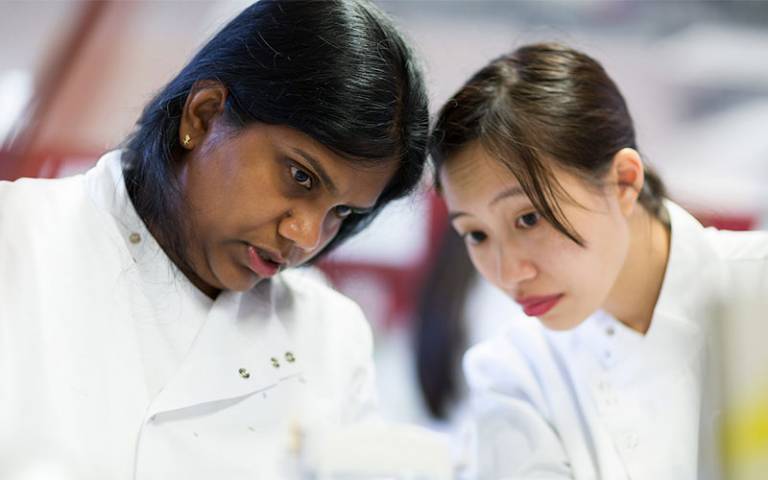UCL alumnus wins prize for innovation in medical education
30 May 2018
Junior doctor recognised for developing e-learning tool for pharmacology curriculum.

A UCL graduate has been recognised for the tool he developed to help fellow students at the UCL Medical School.
Yezen Sammaraiee, now a junior doctor at the Royal Free Hospital, has been awarded the 2018 Foundation Innovation Prize by the Junior Association for the Study of Medical Education (JASME), a Career Group run by juniors (medical students and doctors in training grades).
Dr Sammaraiee, who graduated from UCL in 2016, developed an e-learning tool to guide medical students through a busy lecture-based pharmacology curriculum at UCL Medical School. Here, he tells us more about his innovation.
What was the problem you wanted to address?
"We felt that there was a lack of personalised feedback as students didn’t have a way to consistently test themselves and find out how they were progressing during the academic year. This was especially the case for difficult subjects like pharmacology.
What was your solution?
Our solution was to develop an online question platform specifically catered to the pharmacology curriculum, where students could go through a large number of questions to test themselves.
We first launched on our university portal and almost 90% of the year group used it for revision with excellent feedback. I then partnered with a fellow student who had an interest in web development and we launched a second stand-alone platform, called Ques, where students could test themselves on over 300 questions and also compare their progress to the rest of the year group.
What inspired you to get involved in education?
I felt that there was a big culture of improving education at UCL with lots of encouragement from academics and the next step is to begin to incorporate cognitive science and technology to make learning more efficient for everyone."
- The annual JASME awards are to encourage and reward students and doctors who show imagination and enthusiasm for developing new ideas in medical teaching or education.
 Close
Close

